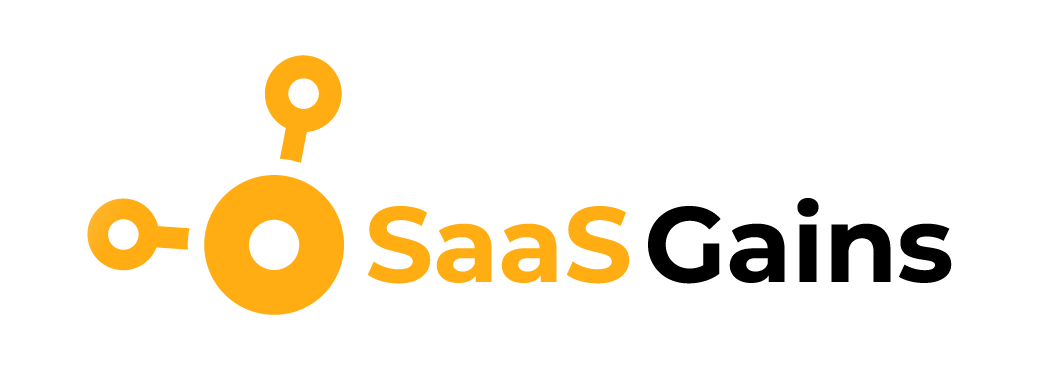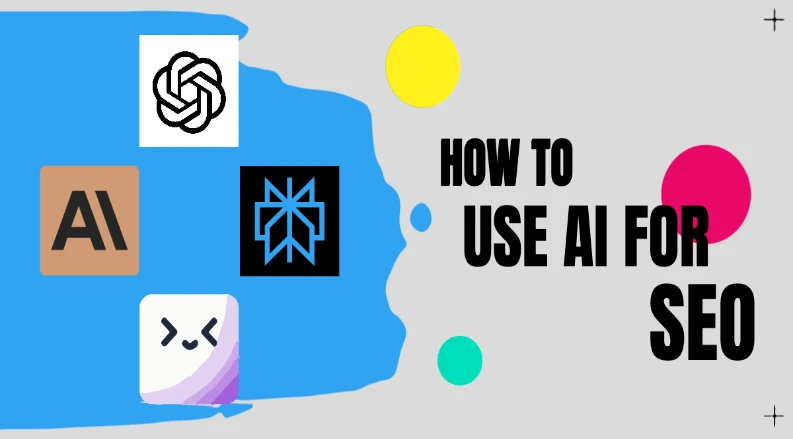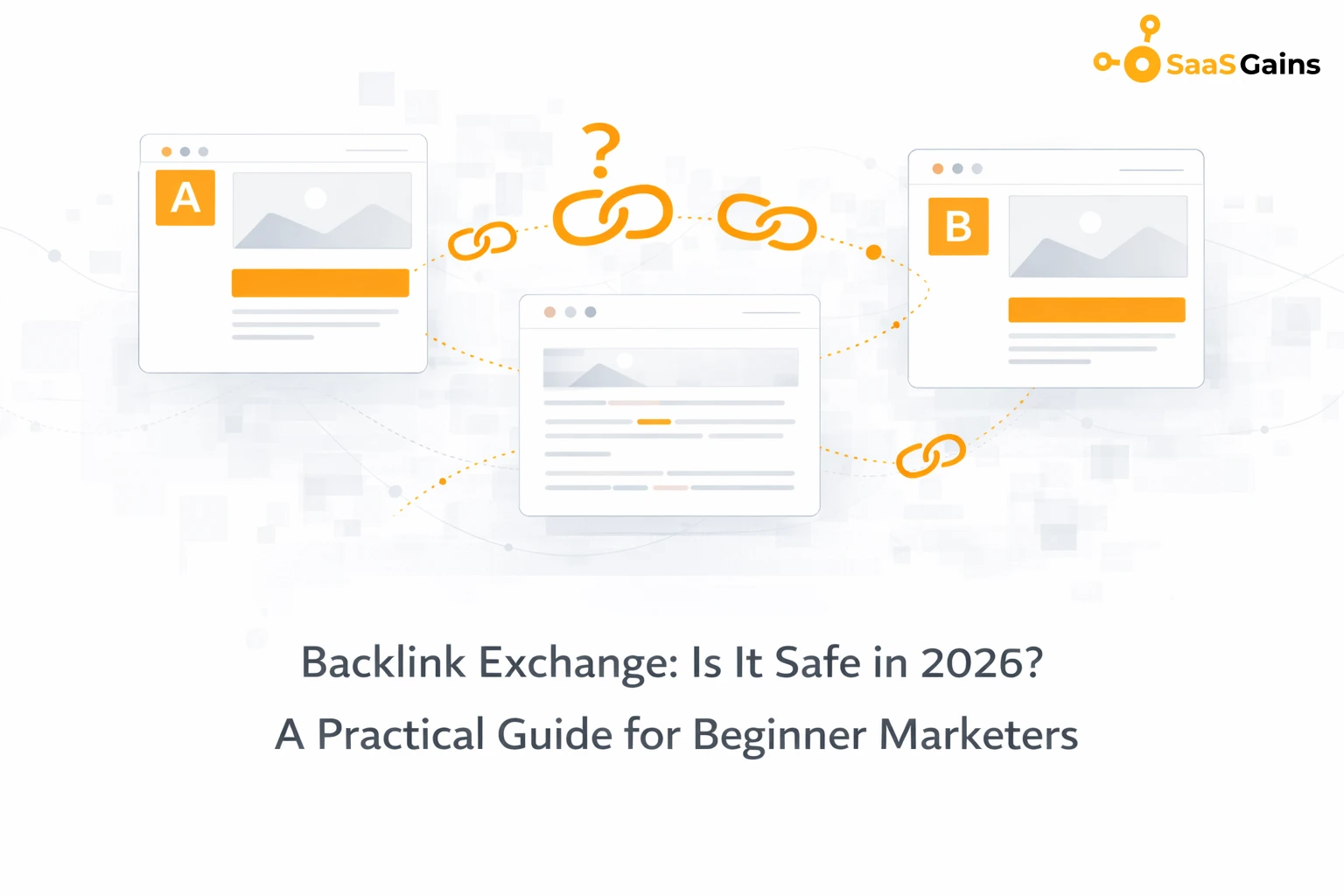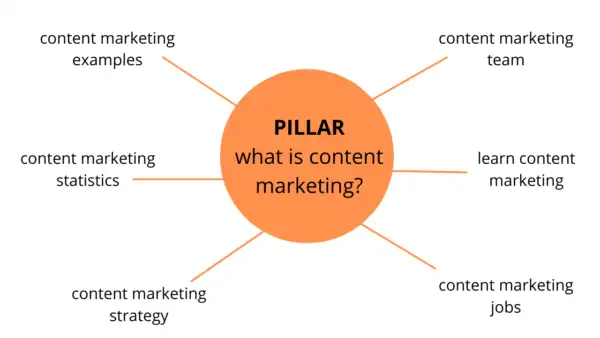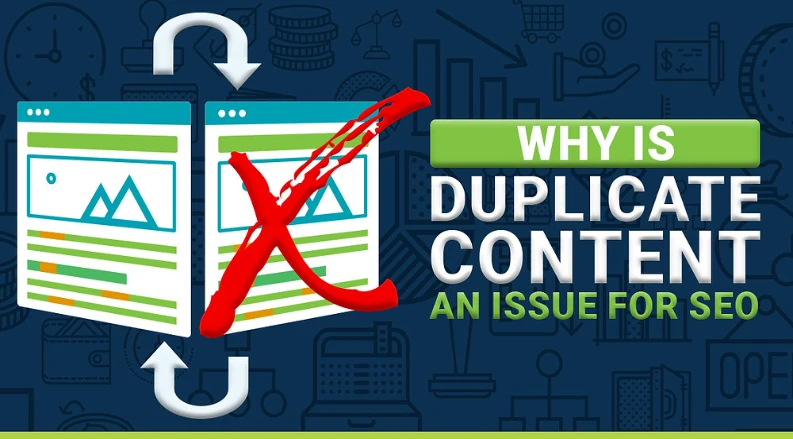The age of search engine optimization is seeing a revolutionary and much-needed renovation, leaving time-consuming and repetitive tasks behind. We are now finally in the age of AI-based SEO, where strong algorithms are doing the heavy work. The change here provides marketers with unprecedented velocity and analytics capabilities.
To any organization that wishes to lead the pack in visibility and relevance, adopting AI for SEO is no longer a luxury but a necessary imperative. How to use AI for SEO is a question every serious marketer is now answering. The volume of information, coupled with the rapid pace of user intent and search algorithms, necessitates the use of combined machine-savvy methods. If you fail to adopt advanced SEO automation, you will soon fall behind.
To emphasize this point, consider a typical keyword research campaign. Some years ago, it might have taken a full working day, while today SEO AI tools are capable of rapidly examining millions of data points and making complete content strategy suggestions within minutes. Such an ability to accelerate everything, from basic research to a full AI-driven SEO audit, defines the SEO trends of 2025 and determines the fate of organic growth
What Is AI SEO? (And How It Works)
AI SEO refers to the process of strategically applying artificial intelligence and machine learning in order to optimize a site’s architecture and content, hence improving its search engine rank. Its most obvious use is to gather vast quantities of data on search behavior and intent to create content that is precisely targeted and very relevant.
The only difference lies in approach: conventional SEO is hindsight-oriented, while AI SEO is highly predictive. AI SEO utilizes advanced algorithms to predict upcoming algorithm updates and user demand and thus suggests preemptive optimization before making it an urgent case. Preemptive optimization enables improved topical relevance.
Current search engines, utilizing Natural Language Processing, or NLP SEO, heavily favor reasonably well-optimized content. The application of proprietary AI SEO tools ensures that your pages become heavily semantically relevant and rank high while reacting to the actual intent behind any query entered by users.
The Role of AI in Modern SEO
AI provides the speed needed, as well as the quantitative level of depth required by human teams to thrive in in-depth coverage and establish strong E-E-A-T (Expertise, Experience, Authority, and Trust). Its coverage reaches all key strategic battlefields of a winning AI SEO campaign.
AI in Keyword Research and Content Ideation
AI has changed the method of both AI keyword research and first-content ideation. Instead of searching for isolated, high-volume keywords, AI software is perfectly capable of identifying “keyword clusters,” or groups of semantically associated keywords. This process guarantees high-quality topical coverage.
These tools scan trending search terms and rival ranks to identify content gaps and clusters with very high relevance that other manual methods overlook. You input a straightforward command in a tool like SurferSEO or Jasper, asking for an in-depth list of underserved clusters, and the software returns actionable suggestions. This methodical content clustering is what maintains your domain and market dominance.
AI for On-Page SEO Optimization
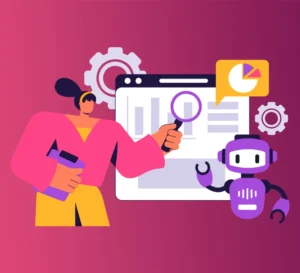
Employing AI-based on-page optimization significantly improves your semantic relevancy and content speed. Software such as Frase and Clearscope scrapes high-performing pages in real-time and gives recommendations on meta descriptions, headings, and intentional internal linking schemes. This type of analysis is crucial for achieving a high NLP match.
This coordination enables complete semantic optimization, and your content not only contains keywords but also perfectly satisfies the contextual requirements of the user query. To any competitive software business, mastering complex best practices like on-page SEO strategies for SaaS is essential, and AI brings your content to this premium level each time. The algorithmic use of these AI tools for SEO greatly assists in maintaining and enhancing rankings.
AI for Technical SEO Site Health & Audits
The automation feature of AI makes it an affordable reality to conduct periodic and comprehensive technical audits, regardless of the website’s size. AI-driven platforms audit a site in real-time, detecting site speed-related issues, mobile responsiveness issues, broken structured data, and other complex technical errors. These kinds of software make maintenance a breeze with SEO automation.
With this ongoing tracking, the AI is able to offer current reporting regarding site performance and website health. Rather than relying on periodic human checks, the AI automates repair prioritization based on their likely effect on organic traffic. This ensures a healthy, stable technical foundation for all your content initiatives.
AI in Comprehending User Queries & Search Patterns
The ability to accurately assess user requirements is the pinnacle of modern SEO, and AI functions optimally when analyzing user queries and SERP data. It correctly categorizes intent as informational, transactional, or simply trying to access a known site. This provides a deep understanding of customer demand.
This advanced ability delivers precise forecast SEO, allowing marketers to predict future demand and content requirements based on nuanced changes in search behavior trends. By relentlessly integrating these AI insights into your master content strategy, you guarantee that every piece of produced content is truly serving a definite user need, maximizing maximum ROI potential.
AI for Content Optimization & Clustering

AI is a significant building block for scaling good content and demonstrating the strength of general knowledge on a subject. AI identifies semantically equivalent articles and groups them into topic clusters that make sense. This grouping enables the organization of content around solid pillar pages, serving as a foundation for sub-pages.
It involves the use of AI content optimization tools to group content in a structured manner, for example, connecting a pillar guide to “AI SEO Strategy” through several articles that break down the applications of AI content creation. Strategically clustering content is highly favored by Google, as it is a clear expression of higher topical authority and specialist expertise.
AI for Backlink Strategy

The time-consuming process of acquiring high-authority backlinks has been totally redefined with the implementation of AI. It can scan competitor profiles in large numbers, immediately identify high-authority link-building opportunities, and accurately assess the relevance of potential domains. This maximizes the efficiency of link-building automation.
The AI must evaluate the worth of backlinks to use in an SEO effort, ensure accuracy of anchor text profiles, and discover highly convertible outreach recipients. For example, to use a link campaign successfully, you must discover the SaaS link-building secret for competitive spaces or use HARO link building, which allows you to network with journalists to create high-authority press mentions. AI outreach software also personalizes messages, significantly improving response and conversion rates.
AI for SEO Performance Reporting and Analytics
AI brings much-needed velocity and simplicity to reporting on SEO performance. It can build instant real-time performance dashboards that strip out noise and show just the most relevant key performance indicators. This saves hours spent manually collating data from multiple sources upfront.
First and foremost, AI offers predictive SEO analytics with advanced features, which allow marketers to anticipate the probable ranking position and traffic effect of their content prior to its publication. If you merge predictive insights with your normal analytics, you will gain a better understanding of your SEO ROI, and consequently, you will use your resources more effectively.
Step-by-Step Guide: How to Use AI for SEO
Effective implementation of AI needs a strong, action-oriented approach that drives participation and longer dwell time.
Step 1: Set Crystal-Clear SEO Objectives. You need to define your objectives explicitly before you can bring in any new tool, whether your aim is to enhance blog-to-lead conversions or drive non-branded organic search traffic. Crystal-clear, measurable goals will determine your entire range of tools and guide your AI SEO strategy moving forward.
Step 2: Choose the appropriate AI SEO tools. Choose targeted software that suits your needs, typically a set of platforms, i.e., an all-around suite for tech audit and a strong language model to accelerate your content ideation. Providing a concrete, high-quality example, such as SurferSEO or Semrush AI, creates context in the reader’s mind.
Step 3: Leverage AI-Fueled Keyword Research. Begin with the AI keyword research tool in order to transcend raw volume metrics and instead seek out profitable, high-intent keyword clusters. This will ensure your content is tailored to fulfill user searches exhibiting commercial or high-value informational intent.
Step 4: Structure Content with AI Ideation Tools. Reorganize your keyword clusters using AI SEO tools to create gorgeously detailed and semantically dense content maps. The tools provide pre-optimized structures for current search algorithms, accompanied by suggestions for rich snippet inclusion and excellent E-E-A-T signals.
Step 5: Cluster and Optimize Your Content. As you produce the content, continue to use your optimization tool to track and refine the semantic relevance of the draft, ensuring it meets all quality standards. While doing so, ensure that you are developing strategic internal linking to create unique topic clusters, thereby establishing your website’s topical authority.
Step 6: AI-Automated Site Health Check. Use your favorite SEO automation tool to run regular technical checks on your site and top-priority fix whatever issues may be occurring in core web vitals, mobile usability, or site health as a whole. It is an ongoing process that guarantees a sound technical base for your content.
Step 7: Track, Analyze, and Optimize SEO Performance. The last, yet most important, step is to utilize predictive SEO analytics to track performance against your original objectives. Leverage the data analytics capability of the AI to identify trends, increase insights into sophisticated search behavior, and make intelligent, fact-based decisions for continuous optimization. Always include a human-curated tip at the end of every step to provide expertise.
Best AI SEO Tools to Use in 2025 (Free & Paid)
The right tools are necessary to develop a complete AI SEO strategy that strictly follows semantic optimization principles.
For content excellence-striving writers and strategists, SurferSEO stands out for its capacity to score content against the best-ranked pages, guaranteeing high semantic relevance. If your objective is to scale content production quickly, Jasper is a top-notch AI content generation tool that delivers strong first drafts and accelerates your overall output.
With a competitive research focus, RankIQ is ideal for discovering low-competition and high-relevance keywords, setting you on the fast track in market niches. Finally, language models like ChatGPT are useful as free AI SEO tools for swift preliminary content ideation, title variation creation, and summarizing large datasets for quicker decision-making.
Benefits of Using AI in Conducting SEO

The competitive advantages of using AI in your marketing are tangible and directly impact your bottom line.
One of the most apparent advantages is that AI frees up time previously spent on tedious, monotonous tasks, such as complex AI keyword research or conducting simple technical audits. That makes your human team available for high-level strategy, creative idea generation, and establishing verifiable expertise.
Second, AI significantly enhances the accuracy and targeting of user preferences through extremely high levels of detail in information on user requests and search habits, which are impossible to imitate. Such accuracy enables each piece of generated content to have a better chance of turning visitors into actual business results.
Lastly, AI enables predictive optimization and scaling of large content libraries on many websites. Predictive SEO analytics will enable you to predict the likely effect of an optimization so that your resources are always deployed most effectively to maximize the return on investment.
Common Mistakes to Avoid
To effectively utilize AI, one should avoid falling into the traps that can undermine one’s efforts and compromise one’s site’s E-E-A-T (Expertise, Experience, Authority, and Trust).
The most prevalent mistake is over-reliance on automation without providing a diligent, expert-grade human review of the content. Never deploy AI content generation without exhaustive fact-checking and proofreading, as unverified content is a strong signal of substandard quality that Google algorithms will penalize.
A hidden strategic error is to ignore E-E-A-T cues in favor of indiscriminately chasing technical optimization scores barfed out by the tools. AI excels at architecture, but it is your own industry-specific expertise and one-off data that need to be infused within the content to build actual trust among the users and Google.
The third trap is copying AI content without optimizing it, resulting in uninspired, flat content. The reason to use AI tools to optimize SEO is not just to create content quickly but to create the best, highest-quality content on the internet for a specific query that requires much human fine-tuning.
Future of AI in SEO

AI marks a watershed moment for search, followed by one of the quickest and most profound changes that mandate ongoing learning.
The most dramatic near-term change is the widespread deployment of Google’s Search Generative Experience (SGE) that employs AI to provide abstracted answers directly on the search engine results page. That is, SEO success will be a function of being cited by SGE as the source, rather than ranking first for a plain link.
We also look for a paradigm shift towards voice and visual search optimization via AI, which will compel marketers to organize their data and keyword planning in a manner more conducive to natural language queries. Additionally, the focus is shifting towards serving hyper-personalized search results, and thus, precise analysis of specific user queries and sensitive search behavior becomes a critical competency.
Final Thoughts
Ultimately, success with AI in the era of SEO depends on an intense synergistic effect between the capabilities of the machine and the strategic mind of the human. SEO automation and AI-based SEO tools are extremely competent co-pilots, carefully handling the vast scale of data analysis and the repetitive work.
But still, the human SEO expert can bestow strategic vision, unique industry insight, and valuable creative flair that truly ignites content on fire. Leverage the power of AI SEO tools for quantity, but never compromise strategy with empathy, creativity, and bottom-line realization of maximum value to your readers.
FAQs
What is AI SEO, and how does it work?
AI SEO utilizes machine learning to comprehend search behavior and data, enabling marketers to automate and optimize technical and content elements more effectively than they could by hand.
What are the best AI tools for beginners in SEO?
Newcomers can start with multipurpose tools like ChatGPT for quick content creation and SurferSEO for semantic content optimization, as these tools bring AI-powered SEO and simple optimization within reach.
Can AI automate keyword research and backlink creation?
Yes, AI automation can significantly accelerate both by utilizing AI keyword research to identify clusters and by successfully identifying and targeting high-value outreach opportunities for backlinks in SEO campaigns.
How does AI advance technical SEO and site health?
AI improves site health through constant, automated technical reviews that identify issues like site speed and schema breakdown in real-time, allowing for fast, fact-based remedies to be applied.
Is AI content Google-ranking-safe?
AI-generated content is safe if it is of high quality, painstakingly proofread for accuracy, and infused with original E-E-A-T signals, as Google actively penalizes poor and unverified content.
